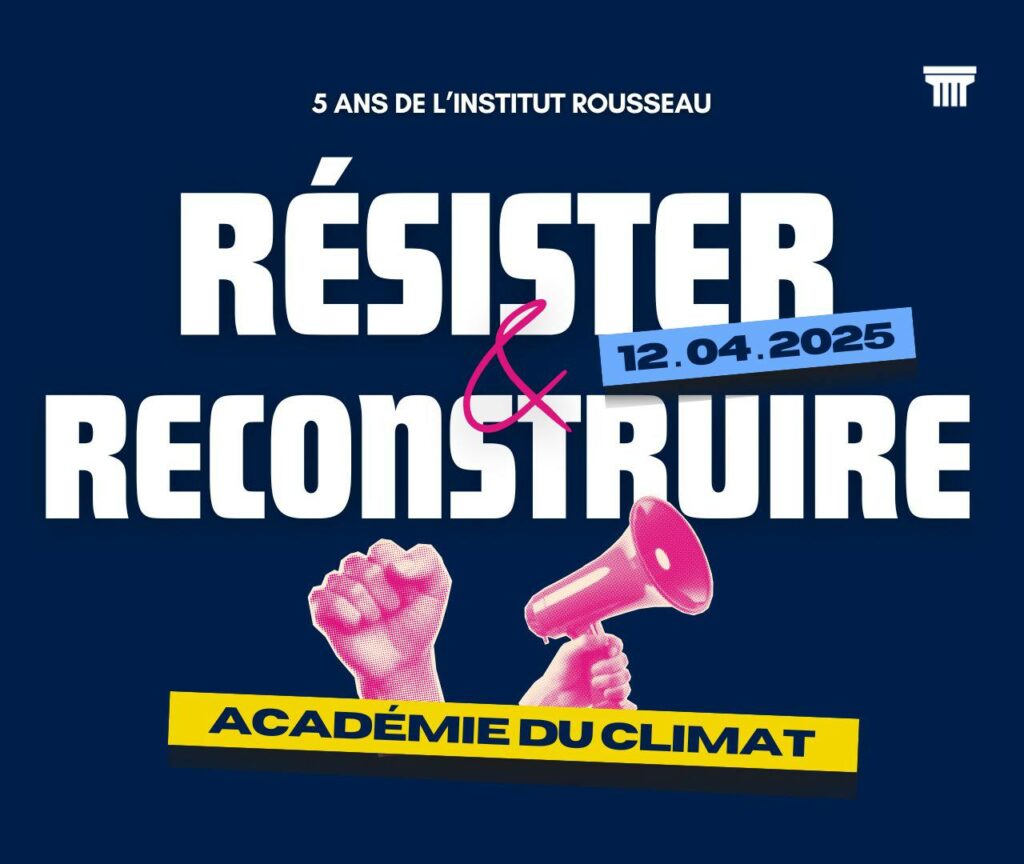Turning to Rousseau to find a philosophy of sexual consent: this sounds like a contradiction in terms. Did he not declare that acceptance of a sexual act can be « read in the eyes… despite the mouth’s refusal » (Letter to d’Alembert)? In Émile, he also states that « the mouth always says no, and must say it; yet the accent it adds is not always the same,” and that « this accent does not know how to lie. » Manon Garcia picked this very sentence for an epigraph to La Conversation des sexes, to emphasize its ambiguity: does this not, in reality, open the way to all abuses? The meaning of an « accent » remains unverifiable. Any predator could claim to have heard the « accent » of « yes » in the most unmistakable « no. »
Rousseau’s trial therefore seems to be no longer in order. And yet, if we want to deeply understand the most recent developments in feminism, and the interventions that, beginning with Vanessa Springora in 2020 to Judith Godrèche in 2024, have awakened the consciousness of the entire French society, we must, without doubt, return to his thought. But for that we must not forget that the author of the Letter to d’Alembert and of Émile also wrote the Social Contract.
The problem: morals and opinion
Let us first recall the reversal that has taken place since #MeToo in 2016. While the sexual revolution of the 1970s advocated unbridled sexuality as a path to liberation , in recent years, the dark side of these practices has come to the fore of public debate. The pleasure imperative reduces women to being nothing more than « consumers of sex », as Alice Zeniter so aptly puts it in a few luminous pages of her novel The Art of Losing. That same danger was already encapsulated in the chilling phrase Laclos, in Les Liaisons dangereuses, puts in the mouth of his main female character, the Marquise de Merteuil, when she refers to a fifteen-year-old girl as a « pleasure machine ».
In the past couple of years, the alienation that results from imposed and premature sexual initiation has been exposed by several resounding works: Le Consentement by Vanessa Springora (2020), La Famiglia grande by Camille Kouchner (2021), Triste tigre by Neige Sinno (2023). Thanks to #MeToo, these books which, just ten years ago, would have been dismissed as puritan killjoys, have finally found the audience they deserved. The idea of consent now seems to take precedence over that of enjoyment – at least in the majority opinion of the media sphere, who are or believe themselves to be well-informed. In the daily life of the majority of the population, however, the domination of dating and pornography sites constructs a quite different reality.
This is not a small problem: the (justified) mediatization of the Matzneff, Duhamel, Jacquot “affairs” in no way prevents the deterioration of male-female relationships. The 2023 annual report of the High Council for Equality between Women and Men draws up a clear observation: far from declining, sexism is getting worse, especially among the younger generations – as evidenced by the 21% increase in the number of victims of domestic violence between 2020 and 2021.
Media hype is therefore not enough to curb sexual abuse, particularly against women. So what can we do? How can public awareness translate into reality? This is where Rousseau can help us gain a better understanding of the issue.
Did Rousseau invent the concept of sexual consent?
Let’s begin by recalling a point that remains underemphasized: Rousseau, although a notorious misogynist, is one of the rare classical authors who use the term « consent » in the now widely used sense of “sexual consent”. I say « one of the rare » here simply out of caution, because the enormity of the corpus makes it difficult to verify for certain. In fact, I am not aware that any other of his contemporaries or predecessors is known for a similar use. Rousseau may well be the first in the history of thought to explicitly transfer the political concept of consent into the sexual realm. (By comparison, Diderot’s Encyclopédie proposes a general definition of consent without allusion to sexuality).
Rousseau in fact defines the sexual act as « the freest and sweetest of all.” This remarkable expression from Émile has already been amply commented on, in the wake of Patrick Hochart, by Claude Habib in her work Le Consentement amoureux (1997). Rightly, she underlines the radical nature of Rousseau’s eroticism, equaled in her eyes only by Plato’s: by forging lasting bonds beyond an irreducible difference, deep conjugal love constitutes the cement of a new democracy where liberty and equality can be achieved without having to resort to the fierce patriotism of ancient cities. However, Habib does not recognize that this permeability between private and public can also work in the other direction – civic engagement providing a model for equality in romantic partnership. « Male-female relationships are not governed by human rights, » she asserts. According to her, while Rousseau recognizes that women experience desire, it would be foolish to conceptualize this desire in terms of a will that could be expressed by “yes” or “no”: « To present feminine desire as a will is a summary image, and good for children. »
She thus forgoes the astonishing formulation used by Rousseau in the Letter to d’Alembert: « It is not yet enough to be loved; shared desires do not alone give the right to satisfy them; the consent of the will is also necessary » (emphasis added). As I recalled at the beginning of this article, this famous note so often incriminated by feminists evokes the “tacit consent” that a man should know how to “read” in a woman’s manners when she does not have the freedom to say “yes”: “reading it in the eyes, seeing it in the manners, despite the refusal of the mouth, is the art of the one who knows how to love.” In other words, men should bear the burden and the consequences of an unequal order built for their benefit: as long as women do not have full and complete freedom of expression, men should be held responsible for having misunderstood them. Of course, this does not erase all risk or ambiguity. There is a form of physical complicity so immediate it can do without words. But where does it end? Where does manipulation begin – or “gaslighting,” which consists, as Hélène Frappat points out in her recent book, in forcing women into silence by systematically depreciating what they say?
On this point precisely, we have much to learn from Rousseau. It is not enough for a woman to loudly proclaim her desire so that she can “enjoy without restraint”, as the French 1970s slogan went (“jouir sans entraves”). The forms this enjoyment takes are not imposed on her, and that her very desire does not result from manipulation. Here we must return to this striking expression: “the will’s consent”. “The heart grants in vain what the will refuses,” meaning a woman can have her reasons for not giving in, even if she is in love — this reminds us of course of The Princess of Clèves. This famous novel by Madame de Lafayette, which Jennifer Tamas magnificently highlights in her recent work Au NON des femmes (2023), was, by Rousseau’s own admission, one of the models for La Nouvelle Héloïse.
Desire and Will: How to Escape Manipulation
Yet this possible disagreement between desire and will also opens up a more sinister possibility. If one can voluntarily refuse to satisfy one’s desire in order to preserve one’s freedom, the reverse is also true. When it is not sufficiently conscious of itself, will can be directed on an object that does not speak to the heart. Out of self-ignorance, by wanting to imitate others, or under the effect of manipulation, one can choose a partner without feeling any sincere desire.
This shows in the stories of Vanessa Springora and Judith Godrèche. True, when they were fifteen or do, they did vocally accept — and even proclaimed — to have asymmetrical relationships with men in their fifties. Only decades later did they denounce these situations as abusive. If you know nothing about female sexuality or about the situation of women today, you can say they changed their minds too conveniently. But, as Godrèche said on the set of « Quotidien », « when you are fourteen, consent does not exist ». Springora’s memoir, Consent, raises the same issue: how do you gain the emotional and intellectual means to consent to your own sexuality?
Fiction offers us a perfect illustration of the problem in My Brilliant Friend by Elena Ferrante. When she is twelve, the narrator, Lenù, sees the father of the boy she is in love with burst into her room one evening; he physically provokes her with « a fit of pleasure against [her] will ». When, at eighteen, she loses her virginity to the same man on an evening of sadness and solitude, she certainly consents in the moment. It will take her several years of hindsight to understand that this first sexual intercourse has been « degrading » – to the point that trying to write down what she experienced brings her to « long crying fits ».
How is this possible? How can you want something – or someone – with no desire? How alienated must you be in order to ask for your own degradation? Is it mimicry, self-destructive curiosity, a lack of education? It is precisely on this point that Rousseau’s thought is valuable to us – if we turn to his political work. It is well-known that the concept of « general will » is central to The Social Contract. However, contrary to a common and superficial reading, the « general will » of the people is not whatever a leader likes to proclaim. Tyranny consists in manipulating the wills of citizens in order to make them serve the interests of the most powerful under the cover of respecting the general will. The whole problem of politics, according to Rousseau, is therefore the agreement between interest and will: how can I want what really interests me (in both senses of the term: what brings me real benefit, and what touches or moves me)? How can I be led to discern where my true interest lies?
The will is easily manipulated because desire, as we can see in the second part of the second Discourse on the Origin of Inequality shows, is constructed mimetically by imitating the preferences of our fellow men. A striking phrase from the chapter « On Civil Status » from the Social Contract says that, while freedom consists in « obedience to the law that one has prescribed for oneself », « the impulse of appetite alone is slavery ». It is doubly so: blindly following the vagaries of one’s desires is dangerous because it subjects you not only to a rule without direction, but also, and especially, to prescriptions dictated by the collective. The apparent carelessness of unhindered enjoyment is therefore, perhaps, the truest face of totalitarian discipline. This is something well understood by predators, who advocate pleasure to bait their prey. Is it so difficult to transpose this political model to relations between the sexes, and especially to the idea women have of their own desires? On an individual scale, because willpower is not innate, it is relatively easy to make us want what, in reality, we do not desire. Then, the task of an adequate education is to put us on the path to true freedom, reconciling desire, will, and dignity.
Conclusion
Because he articulates his concept of desire in terms of will, Rousseau offers a powerful corrective against those who, like Michel Foucault in his time, claim that even children have the means to consent to a sexual act (!). The blind spot of this aberrant thesis is to ignore that free will needs time and training to take shape, whereas Foucault, believed that intelligence descends directly, fully armed, from the heaven of ideas into the mind of the individual subject. In the case of relationships between adults and adolescents, some say that verbal consent is enough to dismiss allegations of sexual abuse. I have shown how absurd it is to minimize the violence of these situations by claiming that it is a rite of passage. You can hear sometimes that unpleasant sexual experiences are inevitable for the formation of the subject. But what do we gain by existing only as an object of desire of someone more powerful than ourselves? Should we risk being annihilated in order to gain the right to live? Is this really the moral education appropriate for a modern democracy?
At this point, we are brought back to the famous question: what to do? I am certainly not claiming that Rousseau holds « the » miracle solution to the problem. But we can find in his thought a valuable contribution to current debates on consent. If we want to move away from immediate denunciation and sensational “affairs,” we must act on educating the will. In schools, for example, increasing the number of days, programs, events, and one-off campaigns against harassment or sexism is not entirely useless – but it cannot replace the work that is necessary for the long term. We should even ensure that these initiatives do not mask the seriousness of the issues under easy ready-made phrases. If girls’ education must be particularly cared on this point, that of boys cannot be left behind: it is not useless to show them that their deep interest does not lie in the commercial paradigm of selfish satisfaction. It is the moral responsibility of teachers, and especially parents, to teach children in their care an economy that does not impose the satisfaction of immediate desire as the dominant model of private life. It would be wrong, however, to believe that this education must stop with childhood – throughout life, we would do well to distance ourselves regularly from the images that are continually offered to us to satisfy our desires.
Finally, and above all, the legal and judicial aspect of the question should not be forgotten. All efforts to bring the question of consent back to the center of public debates will remain in vain if its violation remains lightly punished. What reader of Triste Tigre may not come away disgusted from reading it when learning that the pedophile stepfather spent only five years in prison? Let me quote here one of the most profound precepts from the Social Contract: « It is precisely because the force of things always tends to destroy equality that the force of legislation must always tend to maintain it. »
What is true in economics is also true, and perhaps even more so, in matters of gender equality. I am not trying to turn Rousseau into a feminist — he is not. Yet his thought allows us to construct what he could not have conceived: women whose freedom lies in the awareness of their own value, rather than in the waste of self. Under these conditions, the conversation between the sexes can provide our society with the emotional engine indispensable to any democracy worthy of the name.




